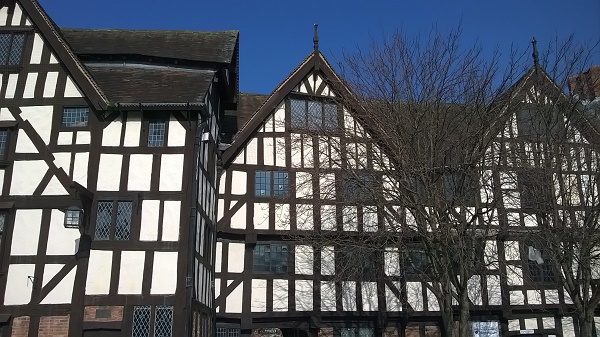Plan to be prepared to help safeguard future of Rowley’s House

Rowley’s House, Shrewsbury
Shropshire Council has appointed local firm Arrol Architects, and historic building consultants TDR Heritage, to prepare a conservation management plan and feasibility study that will help safeguard, and find a viable use for, Rowley’s House and Mansion in Shrewsbury.
The buildings have remained vacant and unused in recent years and during summer 2023 the council carried out stabilisation works at Rowley’s House, along with repairs to the infill panels to the timber-framed parts of the building to make them safe.
Detailed survey works are also being undertaken to create a full picture of what further repairs and adaptions will be needed before the buildings can be brought back into use.
TDR will soon begin work on the conservation management plan which will inform Arrol Architects’ approach to the feasibility study. It’s hoped this work will be completed by next spring.
Dean Carroll. Shropshire Council’s Cabinet member for assets and housing, said:
“I’m delighted that we’ve appointed Arrol Architects and TDR Heritage to help us in our work to secure the future of Rowley’s House – which is an iconic and much-loved building.
“A conservation management plan is essential when planning the conservation of a complex listed building such as Rowley’s.
“Arrol and TDR will engage with stakeholders over the coming months to look at how the building might be adapted for a new use whilst safeguarding its historic value.”
Rob Green, director of Arrol Architects, said:
“Following the delivery of the Shrewsbury Castle conservation management plan, Arrol Architects and TDR Heritage are extremely pleased to be appointed to work on such an important and iconic building within the town in order to secure its long term future.”
Further information
Rowley’s House is a timber-framed three-storey building built for Roger Rowley, a wool merchant, in the late 1500s. Rowley’s Mansion is a substantial extension which was built by Rowley’s son in 1618 and is believed to be the earliest surviving brick-built building in Shrewsbury.
The surrounding buildings were demolished in the early 1930s as part of slum clearance and road widening. However, Rowley’s House was spared and acquired by the Corporation of Shrewsbury from Morris and Co in 1931 and extensively restored. The House was used for housing archaeological material from the site of Viroconium Cornoviorum. The building opened to the public seven years later and became known as the Uriconium or Roman Museum. The buildings were first Listed in 1953 and are referenced in many publications relating to Shrewsbury.
In 1981 Rowley’s Mansion was also acquired from Morris and Co and following refurbishment was used to extend the Roman Museum, allowing it to house additional collections. The buildings were transferred from the former Shrewsbury and Atcham Brough Council to the newly formed Shropshire Council in 2009. The Museum collections were transferred to the Shrewsbury Museum and Art Gallery in the market square in 2014.
The buildings were used for a number of years by the University of Chester but in recent years the buildings have remained vacant and unused. Shropshire Council has been undertaking essential repairs and stabilisation work in recent months with a view to bringing the building back into use once detailed survey works and plans have been prepared.

